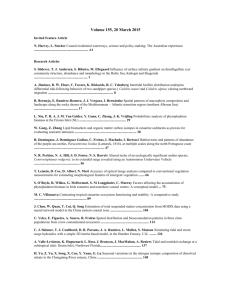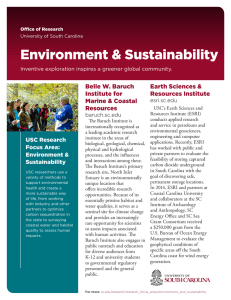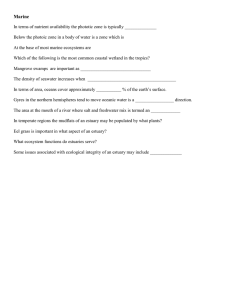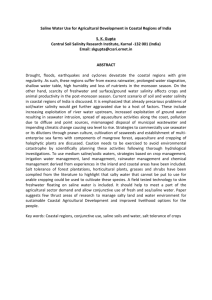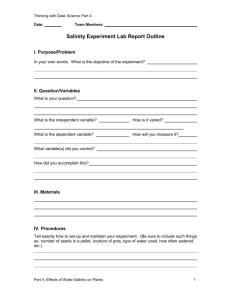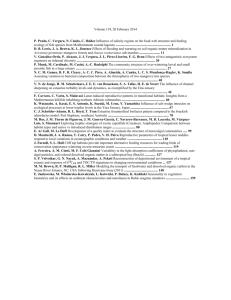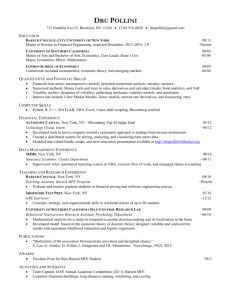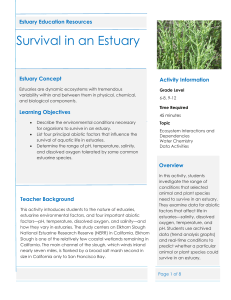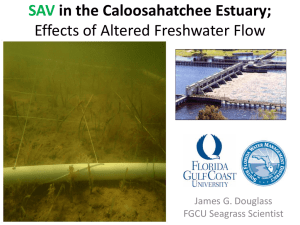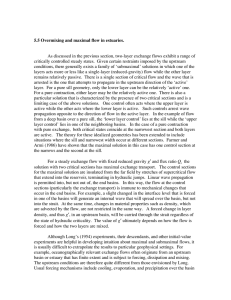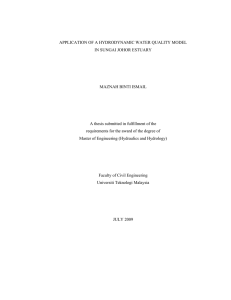Impacts of a rapid, Deep and Persistent Salinity Decrease on... Populations and Ecosystem Function in the North Inlet Estuary, SC
advertisement
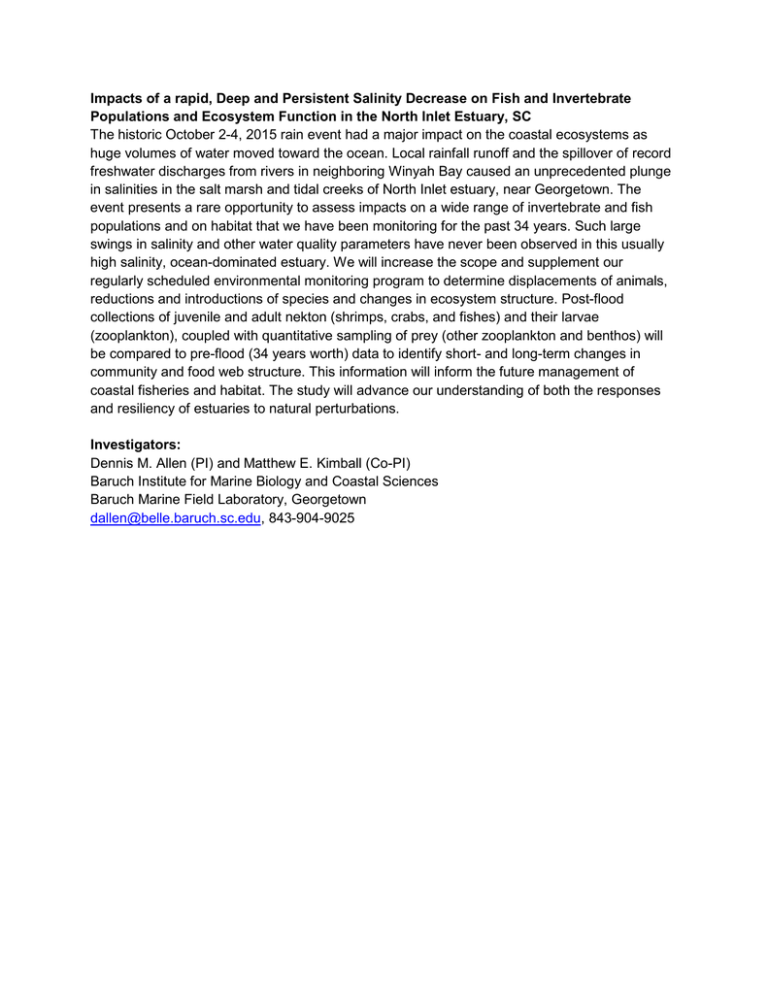
Impacts of a rapid, Deep and Persistent Salinity Decrease on Fish and Invertebrate Populations and Ecosystem Function in the North Inlet Estuary, SC The historic October 2-4, 2015 rain event had a major impact on the coastal ecosystems as huge volumes of water moved toward the ocean. Local rainfall runoff and the spillover of record freshwater discharges from rivers in neighboring Winyah Bay caused an unprecedented plunge in salinities in the salt marsh and tidal creeks of North Inlet estuary, near Georgetown. The event presents a rare opportunity to assess impacts on a wide range of invertebrate and fish populations and on habitat that we have been monitoring for the past 34 years. Such large swings in salinity and other water quality parameters have never been observed in this usually high salinity, ocean-dominated estuary. We will increase the scope and supplement our regularly scheduled environmental monitoring program to determine displacements of animals, reductions and introductions of species and changes in ecosystem structure. Post-flood collections of juvenile and adult nekton (shrimps, crabs, and fishes) and their larvae (zooplankton), coupled with quantitative sampling of prey (other zooplankton and benthos) will be compared to pre-flood (34 years worth) data to identify short- and long-term changes in community and food web structure. This information will inform the future management of coastal fisheries and habitat. The study will advance our understanding of both the responses and resiliency of estuaries to natural perturbations. Investigators: Dennis M. Allen (PI) and Matthew E. Kimball (Co-PI) Baruch Institute for Marine Biology and Coastal Sciences Baruch Marine Field Laboratory, Georgetown dallen@belle.baruch.sc.edu, 843-904-9025
